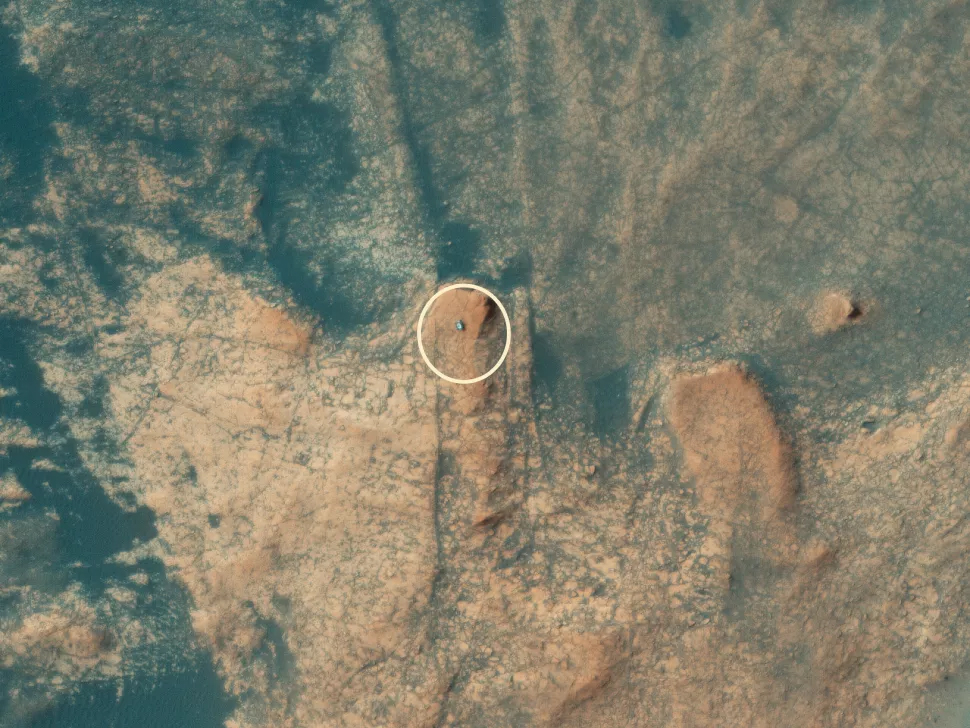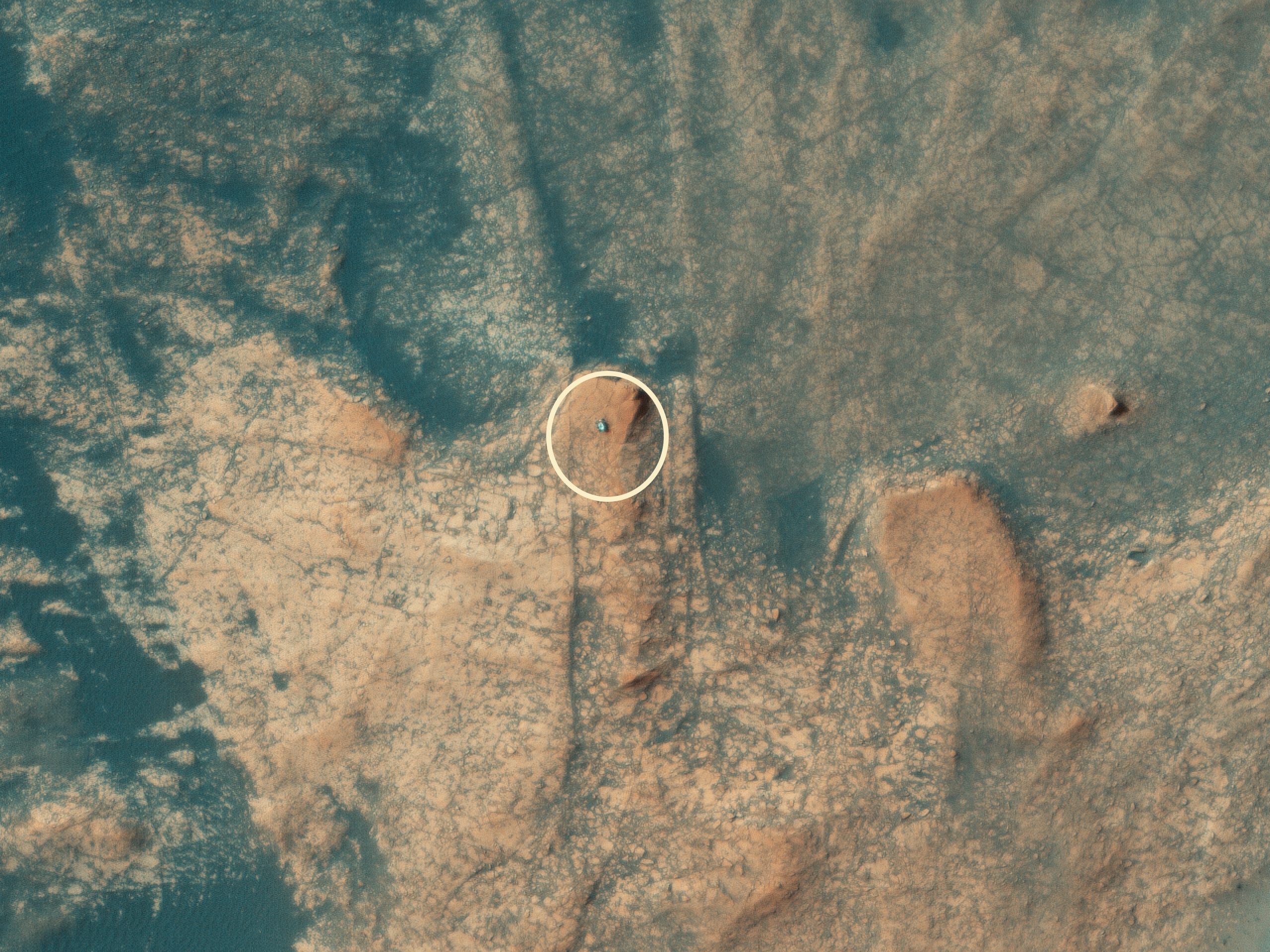
We now have a bird's eye view of the Curiosity rover and its latest Martian digs.
NASA's Mars Reconnaissance Orbiter (MRO) captured a dramatic image last month of Curiosity ascending Mont Mercou, a landform on the slopes of the Red Planet's 3.4-mile-high (5.5 kilometers) Mount Sharp.
MRO took the picture on April 18 using its High Resolution Imaging Science Experiment (HiRISE) instrument, which can resolve features as small as a coffee table on the Martian surface. So the car-sized Curiosity is plainly visible, even though MRO was flying 167.5 miles (269.4 kilometers) above the rover at the time, according to the HiRISE team's image description.
Related: Amazing Mars photos by NASA's Curiosity rover

Curiosity landed inside the 96-mile-wide (154 km) Gale Crater in August 2012, on a mission to determine if the area could ever have supported microbial life. The answer to this question is yes; the six-wheeled robot's observations have shown that Gale hosted a potentially habitable lake-and-stream system for long stretches in the ancient past.
In September 2014, Curiosity reached the foothills of Mount Sharp, which rises high into the Martian sky from Gale's center. The rover has been climbing the mountain ever since, examining the layered rock deposits for clues about Mars' long-ago transition from a relatively warm and wet world to the cold desert planet that it is today.
Observations by MRO and other orbiters show that this transition is recorded in the rock, as a shift from clay-bearing material to layers with lots of salty sulfates. The hills just beyond Mont Mercou are rich in sulfates, "so that is where we're headed," Curiosity deputy project scientist Abigail Fraeman, of NASA's Jet Propulsion Laboratory in Southern California, said in a video update posted on Thursday (May 20).
Sign up for the Live Science daily newsletter now
Get the world’s most fascinating discoveries delivered straight to your inbox.
This is far from the first time that MRO has spied Curiosity. The sharp-eyed HiRISE has picked out the rover multiple times, even snapping an amazing shot of the robot parachuting to the Martian surface during its August 2012 landing.
Curiosity isn't the only robot currently active on Mars. NASA's InSight lander has been monitoring the Red Planet's seismic environment since November 2018, for example, and the agency's Perseverance rover and tiny Ingenuity helicopter touched down on Feb. 18. Ingenuity is gearing up for its sixth Martian flight, and Perseverance is now beginning to sink its teeth into its own life-hunting, sample-collecting mission, after helping support and document the chopper's first five aerial forays.
And Mars just got its first Chinese robot — the Zhurong rover, which touched down May 14 on the vast Red Planet plain Utopia Planitia.
Mike Wall is the author of "Out There" (Grand Central Publishing, 2018; illustrated by Karl Tate), a book about the search for alien life. Follow him on Twitter @michaeldwall. Follow us on Twitter @Spacedotcom or Facebook.











